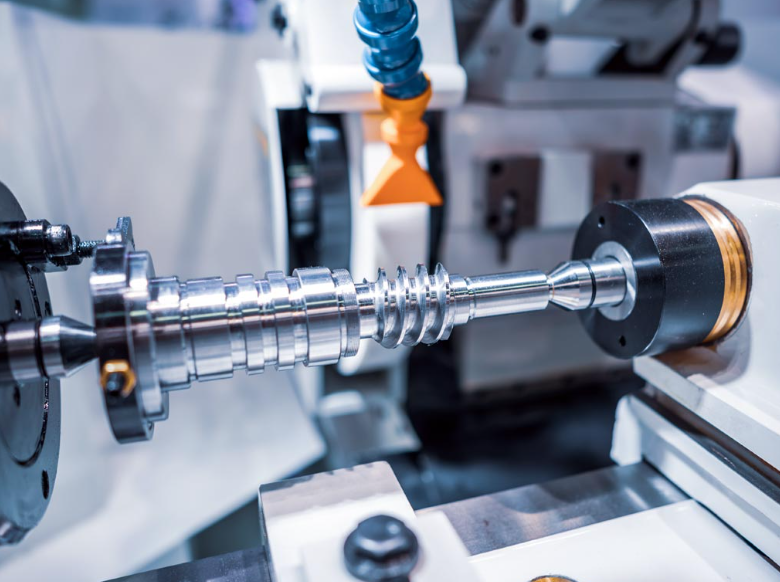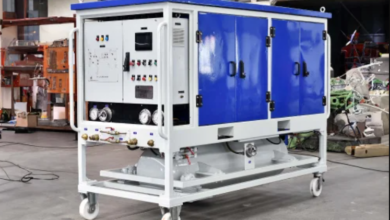In the world of manufacturing, accuracy, repeatability, and cost-efficiency define the success of production systems. As industries evolve and demand more complex components with tight tolerances, manufacturers are turning to advanced machining technologies to keep pace. One such technology that stands at the core of precision manufacturing is cnc turning service. This automated method of shaping cylindrical components has not only streamlined production but has also enabled innovations across industries like aerospace, medical, automotive, and electronics.
This article explores the fundamentals, advantages, applications, and trends of cnc turning service, highlighting why it continues to be a preferred solution in today’s industrial manufacturing processes.
What Is cnc turning service?
cnc turning service is a computer-controlled machining process where a lathe rotates a workpiece while cutting tools remove material to form the desired shape. The machine follows programmed instructions (G-code), typically generated from a CAD model. This eliminates manual errors and enables the creation of precise components at scale.
Unlike manual turning, which heavily relies on the operator’s skill, CNC turning is highly automated and accurate. It offers the ability to produce thousands of parts consistently and efficiently without compromising quality.
How cnc turning service Works
The process begins with a design file of the desired component, created using CAD software. This file is then converted into a set of machine-readable instructions using CAM software. Once programmed into the CNC lathe, the material (metal or plastic) is loaded into the chuck, and the spindle begins rotating.
The cutting tool—mounted on a turret—moves along multiple axes to trim, bore, drill, or thread the material. With precise control over speed, feed rate, and depth of cut, the cnc turning service delivers superior surface finish and accuracy on each piece.
See also: Streamlining procurement processes with reverse auction procurement
Advantages of Using cnc turning service
1. High Dimensional Accuracy
CNC turning machines can maintain extremely tight tolerances, sometimes as precise as ±0.002 mm. This is essential for parts used in medical devices or aerospace systems where even a small deviation can be critical.
2. Consistency in Mass Production
Whether you’re producing 10 units or 10,000, cnc turning ensures uniformity across all parts. Once the program is set, the process repeats without variations, delivering consistent outcomes.
3. Faster Turnaround
Due to automation, CNC turning significantly reduces production time compared to manual machining. It minimizes downtime, tool change delays, and operator fatigue, resulting in quicker project completion.
4. Reduced Labor Costs
One machine operator can oversee multiple CNC lathes at once, reducing the need for a large workforce. The automation also decreases the chances of human error, further reducing the cost associated with defective parts.
5. Material Versatility
A wide range of materials can be machined using cnc turning service. From soft plastics to hardened metals, CNC lathes can be calibrated to handle different properties with optimal efficiency.
Common Materials in cnc turning service
- Aluminum – Lightweight and corrosion-resistant, ideal for transportation and electronics.
- Steel and Stainless Steel – Durable and wear-resistant; commonly used in industrial equipment.
- Brass and Copper – Excellent for thermal and electrical conductivity applications.
- Titanium – Strong and lightweight; used in aerospace and medical implants.
- Engineering Plastics – Such as PEEK, Delrin, and Nylon for non-metallic components.
Each material requires different tooling strategies, cutting speeds, and cooling systems, which are expertly managed through CNC programming.
Typical Applications of cnc turning service
Thanks to its precision and adaptability CNC turning service is used in nearly every manufacturing sector:
- Automotive: Parts such as shafts, bushings, and engine components.
- Aerospace: High-precision elements like fasteners, brackets, and sensor housings.
- Medical: Bone screws, surgical instruments, and dental components.
- Electronics: Connectors, switch housings, and RF enclosures.
- Industrial Machinery: Gears, pulleys, spacers, and couplings.
These industries benefit from the ability to quickly produce prototypes and scale to high-volume production without sacrificing quality.
Features of Advanced CNC Turning Centers
Today’s CNC lathes are far more advanced than their predecessors. Some of the features you’ll find in modern cnc turning service machines include:
- Multi-Axis Capabilities: Enables cutting in multiple directions, reducing the need for secondary operations.
- Live Tooling: Allows the machine to perform milling, drilling, and tapping without removing the part.
- Bar Feeders and Automatic Loading: Speeds up production for long runs by continuously feeding raw material into the machine.
- Closed-Loop Feedback Systems: Provides real-time monitoring and adjustments to ensure consistent quality.
- Touch Probes and Auto Tool Setting: Enhances setup accuracy and reduces manual measurement tasks.
How to Choose the Right cnc turning service Provider
If you’re considering outsourcing your machining needs, selecting the right cnc turning service provider is critical. Here are a few tips:
– Technical Expertise
Ensure the provider has experience with similar parts and understands your industry-specific tolerances and regulations.
– Modern Equipment
A shop equipped with state-of-the-art CNC lathes will offer better results and faster turnaround times.
– Quality Assurance
Look for providers with robust quality control procedures, including in-process inspection and final part certification.
– Customization and Support
Choose a partner who offers design feedback, fast quoting, and open communication to help you through the development phase.
– Scalability
Whether you’re developing a prototype or transitioning to large-scale production, the service provider should be able to meet your volume demands.
Trends in cnc turning service
The cnc turning landscape is rapidly changing, with several technological trends shaping its future:
- AI and Predictive Maintenance: Smart algorithms are being used to forecast tool wear and machine failure before it happens.
- Eco-Friendly Machining: Use of biodegradable lubricants and efficient chip disposal systems to promote sustainability.
- Cloud-Connected Machines: CNC lathes connected via the cloud enable remote monitoring, diagnostics, and data analytics.
- Hybrid Machines: Integration of additive manufacturing with turning allows for creating complex geometries that were once impossible.
These innovations not only enhance productivity but also improve the cost-effectiveness and flexibility of manufacturing operations.
Conclusion
cnc turning service stands as a cornerstone in the modern manufacturing industry. With its ability to produce highly accurate, consistent, and complex parts, it is widely embraced by manufacturers across all sectors. From rapid prototyping to large-volume production, CNC turning offers an efficient, reliable, and cost-effective solution that adapts to the growing demands of global manufacturing.
As new technologies continue to emerge, the value of this service will only grow, helping businesses stay ahead in an increasingly competitive marketplace. Choosing the right provider and leveraging the full capabilities of cnc turning can be the key to achieving long-term production success.





